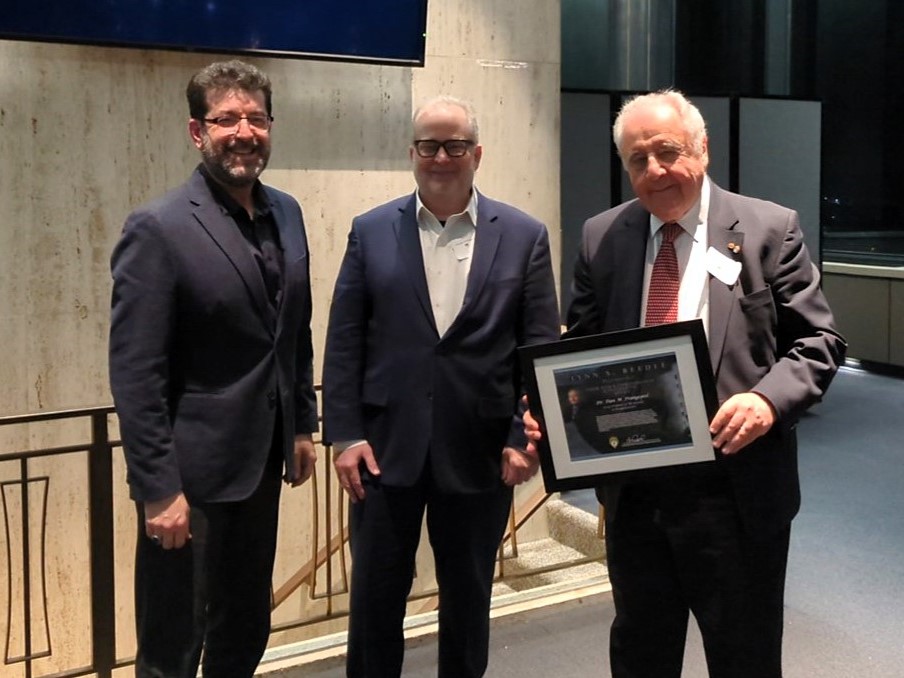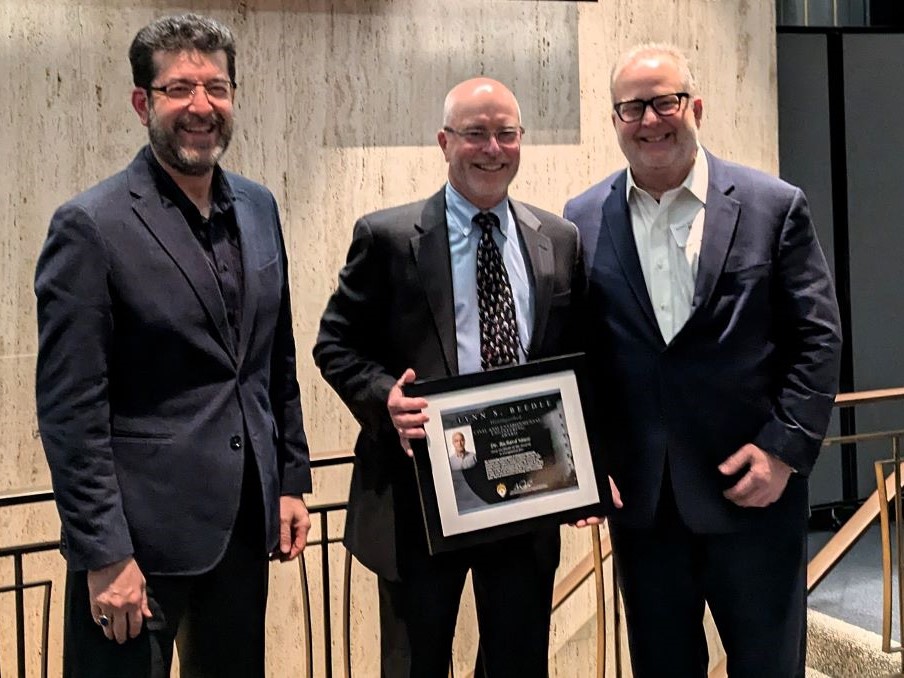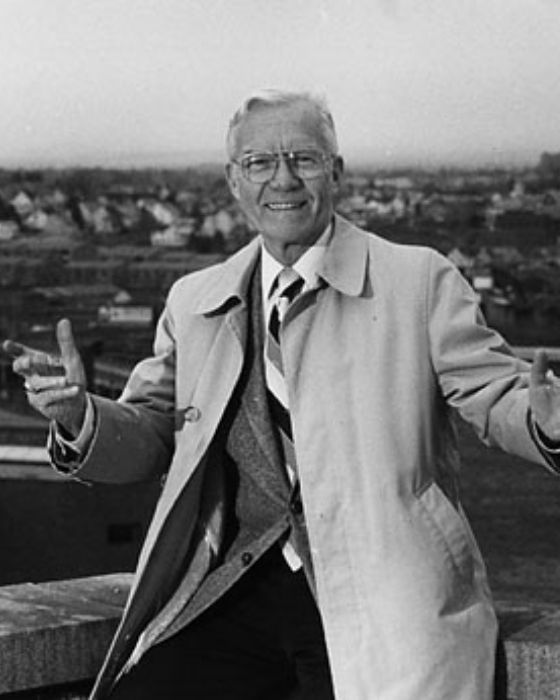Two prominent Lehigh Engineering faculty members, Dan M. Frangopol and Richard Sause, have been honored with the Lynn S. Beedle Distinguished Civil and Environmental Engineering Award in recognition of their exceptional contributions and leadership in advancing resilient, sustainable infrastructure.
This prestigious award, named for the late Lynn S. Beedle '52 PhD, honors faculty or graduates of Lehigh’s Department of Civil and Environmental Engineering (CEE) for outstanding achievements in the field. Beedle, a distinguished professor of civil engineering, was a trailblazer in the design and behavior of tall buildings and the founder of the Council on Tall Buildings and Urban Habitat. His career at Lehigh spanned six decades, during which he achieved membership in the National Academy of Engineering and received the John Fritz Medal.
Endowed by gifts from faculty in the department, the award has recognized a number of outstanding Lehigh engineers, including John W. Fisher ’58G ’64 PhD, founding director of Lehigh’s Advanced Technology for Large Structural Systems (ATLSS) Engineering Research Center and George J. Tamaro ’61G, renowned for his work on the World Trade Center and the Freedom Tower. Beedle received the inaugural award in 2003, shortly before his passing.
“Richard and Dan join a distinguished group of Beedle Award recipients," says Professor and Lehigh CEE chair Shamim Pakzad. “Their careers exemplify the values embodied by Lynn Beedle: transformative research, cross-disciplinary collaboration, and mentorship. From advancing theoretical frameworks to creating practical solutions, their work continues to shape a safer, more sustainable future for infrastructure systems. They have been important pillars of Lehigh’s distinguished standing in structural engineering research and innovation and a testimony to the quality of the scholarship that is done here in the CEE department.”
Dan M. Frangopol: Pioneer in Life-Cycle Engineering

Frangopol, the inaugural holder of the Fazlur R. Khan Endowed Chair of Structural Engineering and Architecture at Lehigh, is internationally celebrated for his pioneering work in life-cycle engineering—a field that integrates structural health, reliability, and sustainability into infrastructure design and maintenance. His research has transformed how engineers approach long-term infrastructure planning, emphasizing durability and cost-efficiency over time.
His groundbreaking contributions span a range of critical areas, from risk-based life-cycle optimization to resilience assessment of bridges and other complex systems under extreme events. A prolific scholar, he has authored or co-authored over 600 peer-reviewed publications, including journal articles and book chapters, and is a fellow of multiple prestigious societies, including the American Society of Civil Engineers (ASCE), which recently named a medal in his honor.
Frangopol’s research has profoundly shaped industry standards worldwide, resulting in safer, more efficient systems that adapt to evolving demands and challenges. As an educator, he has mentored numerous students and researchers, many of whom now lead in academia and industry, continuing his vision for sustainable infrastructure.
Richard Sause: Innovator in Structural Systems and Team Science
 Sause is recognized for his transformative contributions to seismic-resistant and high-performance structural systems. His research has enhanced the design and performance of steel and concrete systems, with technologies he developed now integrated into highway bridges and buildings across the globe.
Sause is recognized for his transformative contributions to seismic-resistant and high-performance structural systems. His research has enhanced the design and performance of steel and concrete systems, with technologies he developed now integrated into highway bridges and buildings across the globe.
As director of ATLSS, Sause oversaw groundbreaking, multi-million-dollar research programs that addressed critical challenges in America’s infrastructure. His leadership fostered a collaborative environment where engineers, materials scientists, computer scientists, and economists tackled complex problems together. Under his stewardship, ATLSS became internationally recognized for its contributions to structural system design and testing, including advancements in hybrid simulation techniques and sustainability-focused projects.
Sause also served as the founding director of Lehigh’s Institute for Cyber Physical Infrastructure and Energy (I-CPIE), launched in 2018 to address societal-scale challenges in energy, intelligent systems, and sustainable infrastructure. Throughout his career, Sause has emphasized the importance of multidisciplinary team science, exemplifying Lehigh’s commitment to innovative engineering education and research.
For more on the researchers’ achievements, visit the links below.


